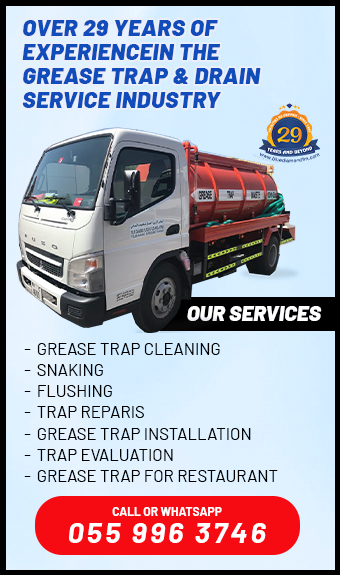FOG Waste Management Tips for Commercial Kitchens
In the fast-paced environment of commercial kitchens, few issues pose as serious a threat to operations and compliance as unmanaged FOG—Fats, Oils, and Grease. FOG Waste Management tips is not just about cleanliness; it’s a legal, environmental, and financial necessity for restaurant owners and kitchen managers across the UAE. From blocked pipes to heavy fines, ignoring this aspect of kitchen hygiene can lead to severe consequences. In this guide, we explore best practices, compliance strategies, and eco-friendly solutions to help commercial kitchens handle FOG waste the right way.
What is FOG and Why It Matters in Commercial Kitchens
FOG refers to the fats, oils, and grease generated during food preparation, cooking, and cleaning. Common sources include fryers, meat scraps, sauces, and even dairy products. Without proper FOG Waste Management, these substances accumulate in plumbing and grease traps, leading to clogs, foul odors, and health code violations.
In a region like the UAE, where sustainability and environmental compliance are increasingly emphasized, managing FOG is also essential for meeting local regulations and avoiding fines. Efficient FOG Waste Management tips is critical to maintaining operational efficiency, preventing costly repairs, and ensuring commercial kitchen compliance


Consequences of Poor FOG Waste Management
1-Pipe Blockages and Plumbing Emergencies
When FOG accumulates in pipes, it solidifies and restricts water flow. This leads to backups, slow drains, and eventually complete blockages, causing kitchen downtime and emergency plumbing costs.
2-Health and Safety Violations
Neglecting FOG Waste Management can result in food hygiene issues such as pest infestation and unsanitary conditions. Health inspectors in the UAE take such violations seriously, which can result in hefty fines or temporary shutdowns.
3-Environmental Damage and Legal Penalties
Improper FOG disposal impacts wastewater treatment facilities and the surrounding environment. UAE municipalities are strict about FOG control systems, and restaurants that fail to comply can face serious legal consequences.
Best Practices for Daily FOG Waste Management
Train Staff on Proper Handling
Make FOG Waste Management a standard part of staff training. Kitchen teams should know how to handle waste responsibly, including separating FOG from wastewater and disposing of it correctly.
Use Grease Catching Tools
Install sink strainers and use absorbent pads to prevent solids and grease from entering drains. Provide containers for used oil disposal in designated areas.
Maintain Daily Logs
Encourage staff to monitor and record FOG levels in grease traps and note any abnormalities. A logbook helps track trends and signals when maintenance is required.
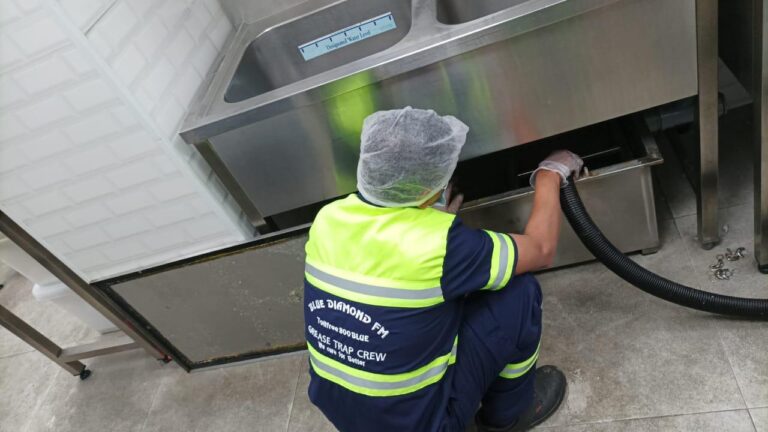
Grease Trap Maintenance and FOG Control
Grease traps are the first line of defense in FOG Waste Management tips. When properly maintained, they prevent fats, oils, and grease from entering the drainage system.
Recommended Cleaning Frequency
Depending on the size and volume of your kitchen, grease traps in the UAE should be cleaned every 1 to 3 months. Some high-volume kitchens may require more frequent servicing.
Signs Your Grease Trap Needs Attention
Unpleasant odors around drains
Slow-draining sinks
Visible grease overflow
Hire a Professional Service
Partner with a certified provider offering grease trap cleaning UAE services. Ensure they understand local regulations and can provide compliance documentation for audits.
Eco-Friendly FOG Disposal Alternatives
Recycle Used Cooking Oil
Work with licensed vendors who offer used oil disposal and recycling programs. Many recycling partners in the UAE turn used cooking oil into biodiesel, supporting sustainability initiatives.
Use Bio-Enzymatic Cleaners
These eco-friendly cleaners break down FOG naturally and can be part of your daily routine. They help reduce buildup without damaging pipes or harming the environment.
Compliance with Local UAE Regulations
Commercial kitchens in the UAE are required to install and maintain grease traps and follow strict FOG Waste Management practices.
UAE Municipality Guidelines
Regular inspection and maintenance of grease traps
Documentation of FOG disposal methods
Use of certified FOG control systems
Staying Compliant
Conduct regular internal audits, partner with certified waste handlers, and keep up with the latest regulatory updates to ensure your restaurant remains compliant.
Conclusion
Effective FOG Waste Management is not just about avoiding fines—it’s about protecting your kitchen, staff, and the environment. By training your team, maintaining grease traps, and embracing eco-friendly disposal methods, you can ensure smooth operations and long-term savings.
Ready to take control of your kitchen’s FOG Waste Management? Contact Blue Diamond team today
Most Frequently Asked Question
The most effective method includes daily segregation, routine grease trap maintenance, and partnering with certified disposal services.
In the UAE, commercial grease traps should typically be cleaned every 1 to 3 months, depending on kitchen activity.
Penalties can include fines, temporary closures, or even permanent license suspension for repeated violations.
Yes, many certified vendors in the UAE offer used oil recycling programs that convert waste into biodiesel.
Slow drainage, strong odors, and visible oil overflow are clear indicators.
Yes, including bio-enzymatic cleaners and oil recycling partnerships that help reduce your kitchen's environmental footprint.
Our Services
Our step-by-step guide simplifies the cleaning process, ensuring a hassle-free experience while keeping your traps clean.
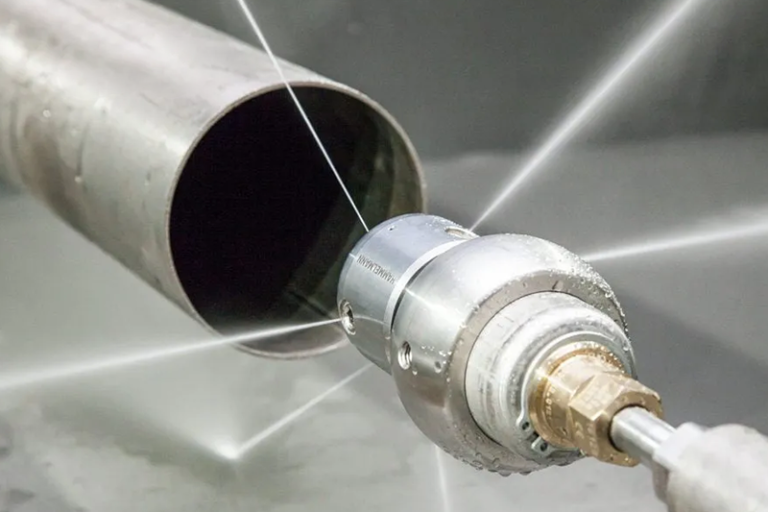
Drain Line Jetting
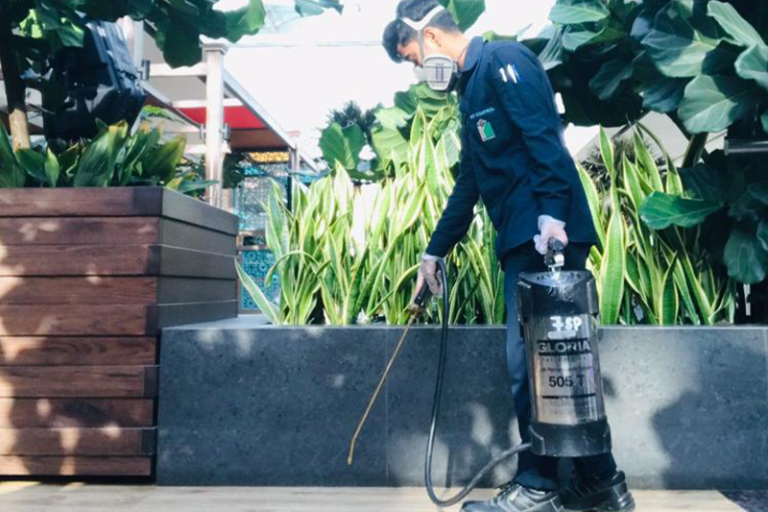
Pest Control Service
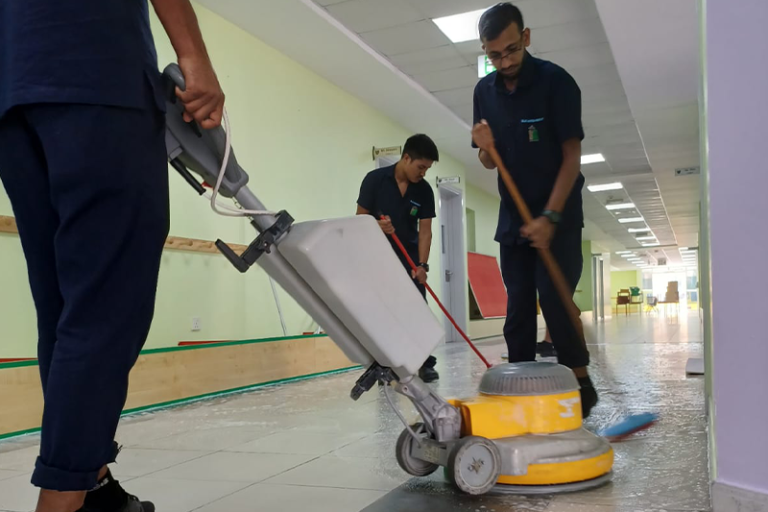
Deep Cleaning
business
Our Working Process
Let’s start the journey towards success and enhance revenue for your business. Take your company to the next level.
Book An Appointment Today
Blue Diamond would like to hear from you. if you have business inquiries. Get in touch with us.





